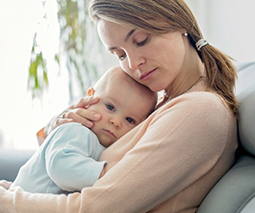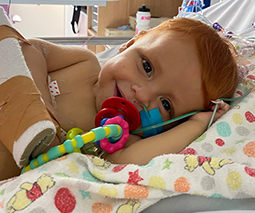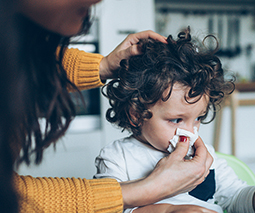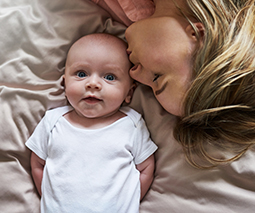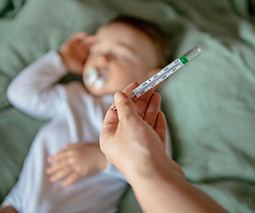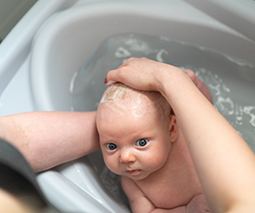Life with a cleft palate or cleft lip: Two families share their stories
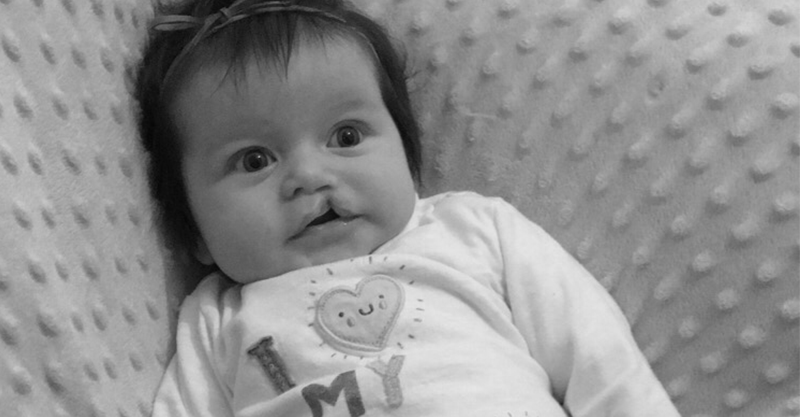
Cleft lips and cleft palates affect one in 800 Australian babies, yet it’s still a rarely talked about condition. We talked to two families about what life has been like for them since their babies were diagnosed with this condition.
https://www.instagram.com/p/BQQUMwIArul/?taken-by=martinaax&hl=en
Martina, Stuart and baby Hadley
UK mum Martina’s adorable baby girl Hadley was diagnosed with a cleft lip and possible cleft palate at a routine 20 week scan.
Martina has a thyroid condition and had been advised it might impact her baby’s health too, so the diagnosis didn’t come as a complete surprise.
“I was told there could of been a wide variety of things wrong with her but thankfully it was only the cleft which is easily fixed. It wasn’t until she was born, that we knew that she only has a cleft lip and gum notch,” Martina, who hails from Swansea, told Babyology.
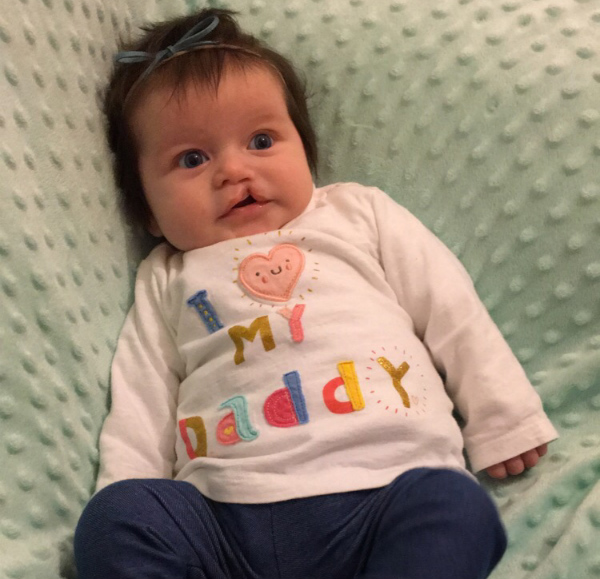
Martina had anticipated Hadley would face a variety of challenges, but says the reality was a little easier than she’d envisaged.
“We prepared for her possibly having a lot more difficulties with feeding, but she was actually a breeze to feed as it doesn’t affect her suction much. The only issue we have encountered so far is that she requires winding a bit more often as she draws in a little more air than a baby normally would,” Martina explained.
Martina and husband Stuart advised other parents of cleft babies not to be alarmed by the diagnosis.
“Don’t be worried when you get the diagnosis, you will fall in love with their extra big smile as soon as you see them!” Martina said.
Hadley was nine weeks old when we spoke to her mum, and was due to have surgery shortly.
Her proud parents continue to approach life with their beautiful cleft bub with positivity – and the vital support of friends, family and a fantastic medical team.
Jessica, Ethan and baby Arthur
Western Australian mum Jessica’s little boy Arthur was born with a cleft lip and a cleft palate.
“Arthur has a unilateral cleft lip on the right side, as well as a hard and soft cleft palate,” Jess told Babyology.
Arthur’s clefts were diagnosed at Jess’s 19 week scan, as the couple were readying themselves for their baby’s gender reveal. They were unprepared for the news, but have hit the ground running and adjusted like champs.
“Shortly after we found out he was a boy, we found out he had a cleft lip and palate. It was a very surreal moment and we were a bit shocked and worried, as we weren’t sure exactly what this meant for our baby. We’d heard of it but weren’t exactly sure what it was, even though as common as it is, it’s not really talked about,” Jess remembers.
The family fell in love with their little boy at first sight, totally besotted by “his big beautiful gappy smile”. Jess is quick to say that Arthur is “a healthy baby in every other way which we are forever grateful for.”
Jess explains that while life with Arthur is generally great, his clefts have made feeding more of a challenge. The family’s medical team have helped to address this, creating a plate to help Arthur suck more effectively and developing other strategies to ensure he thrives.
“He has a plastic plate that they made him when he was born which assists with suction as he’s feeding and making sure the gums grow in the right direction. He also has squeezy bottles,” Jess says.
Jessica had hoped to breastfeed her little boy, but when this wasn’t possible, she realised they’d made some other gains.
“One of the difficulties I personally faced was not being able to breastfeed my beautiful baby boy. But out of this came a positive as his father Ethan was able to feed him and bond with him. I was also able to express and feed him breast milk for four weeks!”
Jess advised other families of babies with clefts to enjoy their brand new, tiny person, despite any difficulties.
“Just relax and enjoy your newborn baby. You will fall in love with him or her no matter what they look like. They have surgery at around three months old to correct the lip and that time will fly by and in that time you would have fallen more and more in love with your baby’s wonderful uniqueness that you almost don’t want it repaired.”
More information
If you’d like to find out more about cleft palates, cleft lips, how they present, risk factors, treatment and lots more, you might like to read Babyology’s Parent’s Guide to Cleft Palates and Cleft Lips.
